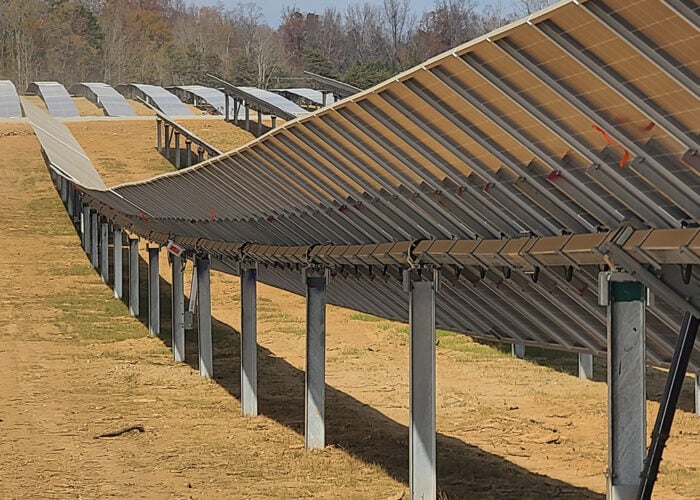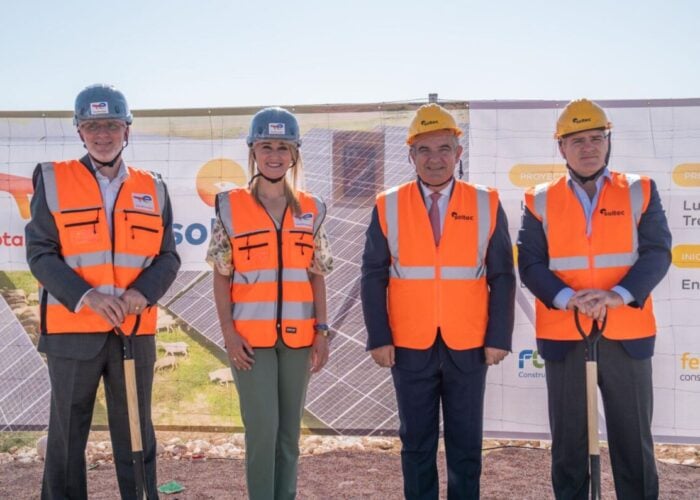A report commissioned by the group lobbying for trade duties on Chinese solar products has described claims made in an earlier study that tariffs would cost the European solar industry €27.8 billion as “highly questionable”.
The report, by accountancy firm PricewaterhouseCoopers (PwC) and commissioned by EU Prosun, said the Prognos study, commissioned by the Alliance for Affordable Solar Energy (AFASE) in February, contains major flaws in methodology and content.
Unlock unlimited access for 12 whole months of distinctive global analysis
Photovoltaics International is now included.
- Regular insight and analysis of the industry’s biggest developments
- In-depth interviews with the industry’s leading figures
- Unlimited digital access to the PV Tech Power journal catalogue
- Unlimited digital access to the Photovoltaics International journal catalogue
- Access to more than 1,000 technical papers
- Discounts on Solar Media’s portfolio of events, in-person and virtual
PwC said it analysed the Prognos study according European Commission guidelines on evidence used in competition proceedings.
It concluded that the Prognos study used a questionable methodology that was inconsistent with theseguidelines. “This study should be dismissed and not taken into consideration by the European Commission, European Courts or Member States,” PwC said.
The report questioned the “plausibility and reliability” of the data provided by Prognos because it could not apparently be reconciled with official data from the German Federal Ministry for the Environment, Nature Conservation and Nuclear Safety (BMU), which has calculated the number of direct and indirect jobs related to the PV sector.
The Prognos study said a duty rate of 35% would result in the loss of 119,700 jobs in the first year of tariffs, and at 60% would claim 193,700 jobs.
But PwC said these figures exceed the total number of jobs in the industry in the BMU study.
Paulette Vander Schueren, spokesperson for AFASE told PV-Tech that the Prognos study used figures provided by the European Photovoltaic Industry Association (EPIA) that took into account rising demand for solar.
“The impact of the duties cannot be accurately calculated without this being taken into account,” Schueren said. “Moreover, the results of the Prognos study are based on conservative calculations.”
The PwC report also considered evidence from the US where a similar trade case was concluded last year and the effects the tariffs imposed by the US Department of Commerce on Chinese manufacturers had on the US PV industry.
The Coalition for Affordable Solar Energy in the US, which opposed duties, commissioned the Brattle Group to conduct a study that predicted “substantial price increases for crystalline photovoltaic cells and modules” and a corresponding decline in demand by residential, commercial and utility customers.
However, PwC concluded that developments since tariffs were imposed in the US have not shown this to be true.
The report acknowledged that the European and US markets are not identical, but drew parallels between the Brattle Group and the Prognos studies in terms of the “unreliable overestimation of negative employment effects which in the case of the US has already been rebutted by reality”.
Prognos argued that a comparison between the US and EU markets was “irrelevant and not a threshold to measure the effect that duties might have on the EU PV value chain”.
The US duties apply to cells of Chinese origin whether or not integrated into modules, whereas the EU tariffs would cover wafers, cells and modules.
As a result, Prognos said modules manufactured in China from non-Chinese cells are not subject to the US anti-dumping and/or countervailing duties.
“If imports into the US of modules manufactured in China incorporating Chinese cells have decreased while US installations have spiked, it is precisely because demand is being met by modules manufactured in China using non-Chinese cells in addition to modules manufactured outside China.”
In April, the Coalition for American Solar Manufacturing, which launched the trade case against Chinese manufacturers in the US, released a statement claiming some importers may either be improperly declaring merchandise as not subject to the AD/CVD orders, or may be understating the value of the imported merchandise declared as subject to the relevant orders.
Schueren said: “If the US duties are not fully efficient, no wonder that they do not have an effect on the PV value chain.”
Milan Nitzschke, president of EU ProSun, told attendees of the European Commission’s the first Global Solar Summit last week: “Only anti-dumping measures can prevent the creation of a Chinese monopoly, which would lead to higher prices, less innovation and even further job losses in Europe.
“China is burning up millions of euros in Europe and is destroying the best solar industry sector in the world due to price dumping.
Speaking at the same event, Guangbin Sun, general secretary of the solar division for the Chinese Chamber of Commerce, said: “If exports from China are impeded, the consequences will fall on the costs of European products. Nevertheless, we are willing to collaborate and maintain a dialogue in order to bring our production in line with market demand.”
Last week, PV-Tech reported that the European Commission is planning to impose between 37.2% and 67.9% tariffs on Chinese solar module manufacturers. If approved by member states, these figures will be published in the Official Journal next month.







